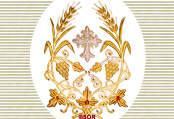|
OO Meetings
 Dec-2005 Dec-2005
 Oct-2004 Oct-2004
 Oct-2003 Oct-2003
 Dec-2002 Dec-2002
 Mar-2001 Mar-2001
 May-2000 May-2000
 Feb-1999 Feb-1999
 Mar-1998 Mar-1998
Other Dialogues
 OO-Anglican: Nov-2003 OO-Anglican: Nov-2003
 OO-RC: Jun-2003 OO-RC: Jun-2003
 OO-Anglican: Nov-2002 OO-Anglican: Nov-2002
 Russian Orth: Sep-2001 Russian Orth: Sep-2001
 Pope at Damascus: May-2001 Pope at Damascus: May-2001
 OO-RC: Jun-2000 OO-RC: Jun-2000
 Syriac Consultation: Jul-1997 Syriac Consultation: Jul-1997
 Easter Date: Mar-1997 Easter Date: Mar-1997
 OO-MSOC: Jan-1994 OO-MSOC: Jan-1994
 Melkite-SOC: Nov-1991 Melkite-SOC: Nov-1991
 RC-SOC: 1971 & 1984 RC-SOC: 1971 & 1984
|
|
The pastoral guidelines for interchurch marriages accompany the agreement between the Catholic Church and the Malankara Syrian Orthodox Church, dated 25 January 1994. The guidelines were prepared by the two churches separately, but accepted mutually.
- These guidelines are framed on the basis of the common declaration of His Holiness Pope Paul John Paul II and His Holiness Patriarch Ignatius Zakka I Iwas (on 23 June 1984).
- Commissions were appointed by both Churches to explore ways and means to foster the existing common affirmation of the faith and sacramental unity between the Churches.
- Having considered the above mentioned declaration and the unity that exists between the two Churches in faith and sacraments, both Churches have agreed to accept the reality of interchurch marriages taking place between their members.
- The two Churches desire to foster marriages within the same ecclesial communion and consider this the norm. However, accepting the reality that interchurch marriages do take place at times, the two churches have decided to facilitate the celebration of the sacrament of matrimony in either Church, allowing the bride/bridegroom the right and freedom to retain his/her own ecclesial communion, by providing necessary information and documents.
Preparation for Interchurch Marriages
- When the parties apply for an interchurch marriage, they should be told that marriage within the same faith is better for the harmony of the family and the upbringing of the children.
- If they insist on conducting the interchurch marriage, they should be instructed properly about the Agreement reached between the Syrian Orthodox Church and the Catholic Church on interchurch marriages.
- It should be stressed that, while each partner holds his/her ecclesial faith as supreme or paramount, he/she should respect the ecclesial faith of his/her partner.
- A pre-marriage preparatory course and a pre-marital counseling session are highly recommended.
- The bride/bridegroom shall produce his/her baptismal certificate.
- The priest must ensure that the bride/bridegroom is eligible for marriage.
- The priest should ensure that the bride/bridegroom has paid the church donations in connection with marriages according to the practice of the Churches.
- The bride and bridegroom, after mutual consultation, may select the church in which the marriage is to be celebrated.
- Written permission for interchurch marriage from the respective bishops should be obtained by the bride/bridegroom.
- Banns should be published in the respective churches, which also announce that it is an interchurch marriage.
- Once the permission is obtained from the bishops, the respective parish priests are expected to issue the necessary documents for the conduct of marriage.
- Marriage in the Lent or Advent seasons is only to be conducted with the permission of the bishops.
Celebration of Interchurch Marriages
- The liturgical minister should be the parish priest of the church where the marriage is celebrated, or his delegate from the same ecclesial communion.
- There is to be no joint celebration of marriage by the ministers of both Churches. The marriage is to be blessed either by the Catholic or by the Syrian Orthodox minister. However, there could be some kind of participation at the liturgical service by the other minister, who could read a Scriptural passage or give a sermon.
- On the occasion of these celebrations, the couple and any members of their families who belong to these Churches are allowed to participate in the Holy Eucharist in the Church where the sacrament of matrimony is being celebrated.
- Proper entries must be made in the Church registers, and marriage certificates should be issued for a record to be made in the register of the other Church.
Pastoral Care of Catholic-Syrian Orthodox Interchurch Families
- The Syrian Orthodox partner is to be reminded that he or she has to commit him/herself to imparting to their children proper Orthodox formation, to the extent possible and in agreement with his/her partner. Such formation should be fully in harmony with the Orthodox tradition to which he/she belongs.
- The pastors of both partners are bound in conscience to provide continued pastoral care to the interchurch families in such a way as to contribute to their sanctity, unity and harmony.
- Each partner is to be advised to attend the liturgical celebrations of his/her respective Church, but the couple may be allowed to participate jointly in the Eucharistic celebration on special occasions when this joint participation is socially required.
- Any declaration of the nullity of such marriages is only to be considered with the consent of the bishops concerned from both Churches.
- The funeral service should as far as possible be conducted according to the rite of the dead person's Church, even though he/she may be buried in either of the cemeteries, especially if the other partner is already buried there in a family tomb.
Source: Chorepiscopus V. Rev. Kuriakose Moolayil
|
|
|

